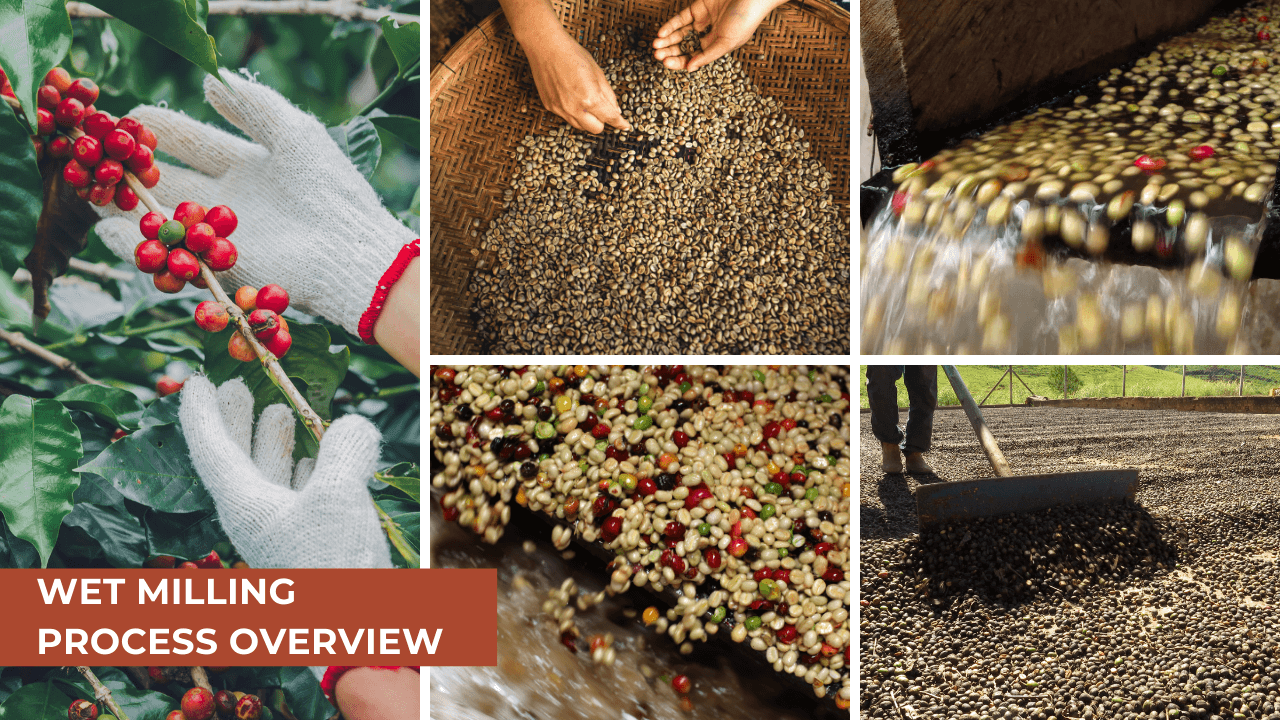Transforming Your Coffee Experience: The Art and Science of Wet Milling
Transforming Your Coffee Experience: The Art and Science of Wet Milling
Blog Article

Have you ever wondered why some coffees tantalize your taste buds while others fall flat? The secret often lies in a crucial process known as wet milling. This method not only enhances flavor but also elevates your coffee experience to new heights. Whether you're a casual drinker or a dedicated coffee connoisseur, understanding wet milling will transform how you appreciate your daily brew. Let’s dive deep into this intricate process and discover how it shapes the vibrant flavors we love.
Understanding Wet Milling: The Backbone of Quality Coffee
When you savor a cup of coffee, you might think about its rich aroma or bold flavor, but behind every great brew is a meticulous processing method that begins long before roasting. At the heart of this journey is wet milling—a sophisticated technique essential for producing some of the finest coffees in the world.
Wet milling, or wet processing, is a comprehensive method that removes the outer layers of the coffee cherry, preparing the beans for drying. This intricate process involves several key steps:
1. Harvesting:
Only the ripest cherries are handpicked, ensuring the highest quality.
2. Sorting:
Harvested cherries are meticulously sorted to eliminate defective or unripe fruits, setting the stage for excellence.
3. Depulping:
The outer flesh is mechanically removed, exposing the beans, which remain coated in a sticky substance called mucilage.
4. Fermentation:
Beans are placed in fermentation tanks for 12-36 hours, allowing natural enzymes to break down the mucilage.
5. Washing:
Thorough washing removes any lingering mucilage and fermentation byproducts, ensuring purity.
6. Drying:
Finally, the beans are dried to an optimal moisture content of 11-12%, using sun or mechanical methods.
This meticulous approach allows for greater control over the coffee’s flavor profile, typically resulting in cleaner, brighter cups.
The Magic of Fermentation: Crafting Flavor Profiles
Fermentation is a pivotal stage in the wet milling process. Here, natural enzymes break down sugars, creating complex flavors. Skilled producers closely monitor this phase, balancing the timing to achieve the desired taste. A fermentation period that is too short may lead to underdeveloped flavors, while excessive fermentation can result in undesirable sour notes.
Factors such as temperature, humidity, and the presence of specific microorganisms play significant roles in shaping the final flavor profile. Some innovative producers even experiment with extended fermentation times of up to 100 hours to create unique, fruity, or wine-like notes—though this requires precision to avoid spoilage.
Why Wet Milling Matters: A Flavor Revolution
So why invest time and resources in wet milling? The answer is simple: it enhances your coffee. Wet-processed coffees are characterized by:
Clarity of Flavor: Clean and crisp, allowing the inherent qualities of the beans to shine.
Bright Acidity: Lively and vibrant, often described as citrusy or floral, elevating the overall tasting experience.
Complex Aromatics: A diverse bouquet of scents that enriches the coffee-drinking journey.
These attributes are especially coveted in the specialty coffee sector, where unique regional characteristics and varietals can be showcased.
Environmental Responsibility in Wet Milling
While the benefits of wet milling are undeniable, the process does have its challenges, particularly concerning water usage. Traditionally, wet milling requires substantial water—up to 130 liters per kilogram of coffee. However, the industry is evolving:
Water Recycling: Many producers are implementing systems to reuse water, minimizing waste.
Eco-Friendly Equipment: Innovations like eco-pulpers are reducing water needs and enhancing sustainability.
Waste Utilization: Nutrient-rich pulp and wastewater are being repurposed as fertilizers, turning potential waste into a wet milling process valuable resource.
These advancements highlight that quality coffee production and environmental stewardship can coexist.
Tasting the Difference: How to Appreciate Wet-Processed Coffee
To truly enjoy the nuances of wet-processed coffee, consider these tips:
Look for Flavor Notes: Seek descriptors like “bright,” “clean,” or “citrusy” on labels; these often indicate wet processing.
Explore Regional Varieties: Taste coffees from different regions side by side to appreciate how wet milling enhances unique characteristics.
Experiment with Brewing Methods: Try pour-over or AeroPress techniques that emphasize clarity.
Savor the Acidity: Pay attention to the vibrant acidity and subtle fruit or floral notes—hallmarks of quality wet milling.
Frequently Asked Questions About Wet Milling
Is wet milling better than dry processing?
Each method produces distinct flavor profiles. Wet milling typically yields cleaner, brighter coffees, while dry processing often results in fuller-bodied, fruitier flavors.
Does wet milling affect caffeine content?
No, caffeine levels are primarily influenced by the coffee variety and roast level, not the processing method.
How much water does wet milling use?
Traditional methods require significant water, but modern techniques have reduced this to as little as 5 liters per kilogram.
Can I tell if a coffee is wet-processed by looking at the beans?
Wet-processed beans tend to have a more uniform color and lack the papery silverskin found on dry-processed beans.
Conclusion: The Journey of Your Coffee
In conclusion, wet milling is more than just a production step—it’s an art form that shapes the character of your daily cup. From cherry selection to fermentation management, every aspect contributes to creating vibrant, complex coffees.
The next time you enjoy a particularly lively cup, take a moment to appreciate the journey it’s taken—from the skilled hands that harvested the cherries to the careful processes that transformed them into the brew you love. This dedication to quality and precision is what makes wet-processed coffee truly exceptional.
Elevate your coffee experience today, and explore the vibrant world of wet milling!